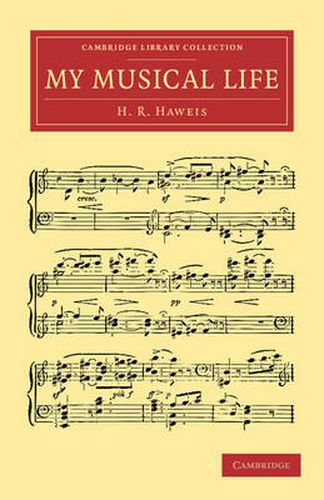Readings Newsletter
Become a Readings Member to make your shopping experience even easier.
Sign in or sign up for free!
You’re not far away from qualifying for FREE standard shipping within Australia
You’ve qualified for FREE standard shipping within Australia
The cart is loading…






Hugh Reginald Haweis (1838-1901) was a clergyman and writer. Published in 1884, this memoir deals with one of his great interests: music. He was a proficient violinist, and his musical writings included books on church bell-ringing, violins, and the best-selling Music and Morals (also reissued in this series), which had reached its sixteenth edition by his death. As curate of St James, Westmoreland Street, he used musical events as a way of turning an empty church into a fashionable one. He acted as music critic for Truth and the Pall Mall Gazette, in addition to lecturing and writing on religious subjects. The book recounts a lifetime of making and enjoying music, and conveys Haweis’ emotional response to music from an early age. It is a record of nineteenth-century musical performances and changing tastes, which also demonstrates Haweis’ belief in the reforming influence of music on morals and society.
$9.00 standard shipping within Australia
FREE standard shipping within Australia for orders over $100.00
Express & International shipping calculated at checkout
Hugh Reginald Haweis (1838-1901) was a clergyman and writer. Published in 1884, this memoir deals with one of his great interests: music. He was a proficient violinist, and his musical writings included books on church bell-ringing, violins, and the best-selling Music and Morals (also reissued in this series), which had reached its sixteenth edition by his death. As curate of St James, Westmoreland Street, he used musical events as a way of turning an empty church into a fashionable one. He acted as music critic for Truth and the Pall Mall Gazette, in addition to lecturing and writing on religious subjects. The book recounts a lifetime of making and enjoying music, and conveys Haweis’ emotional response to music from an early age. It is a record of nineteenth-century musical performances and changing tastes, which also demonstrates Haweis’ belief in the reforming influence of music on morals and society.